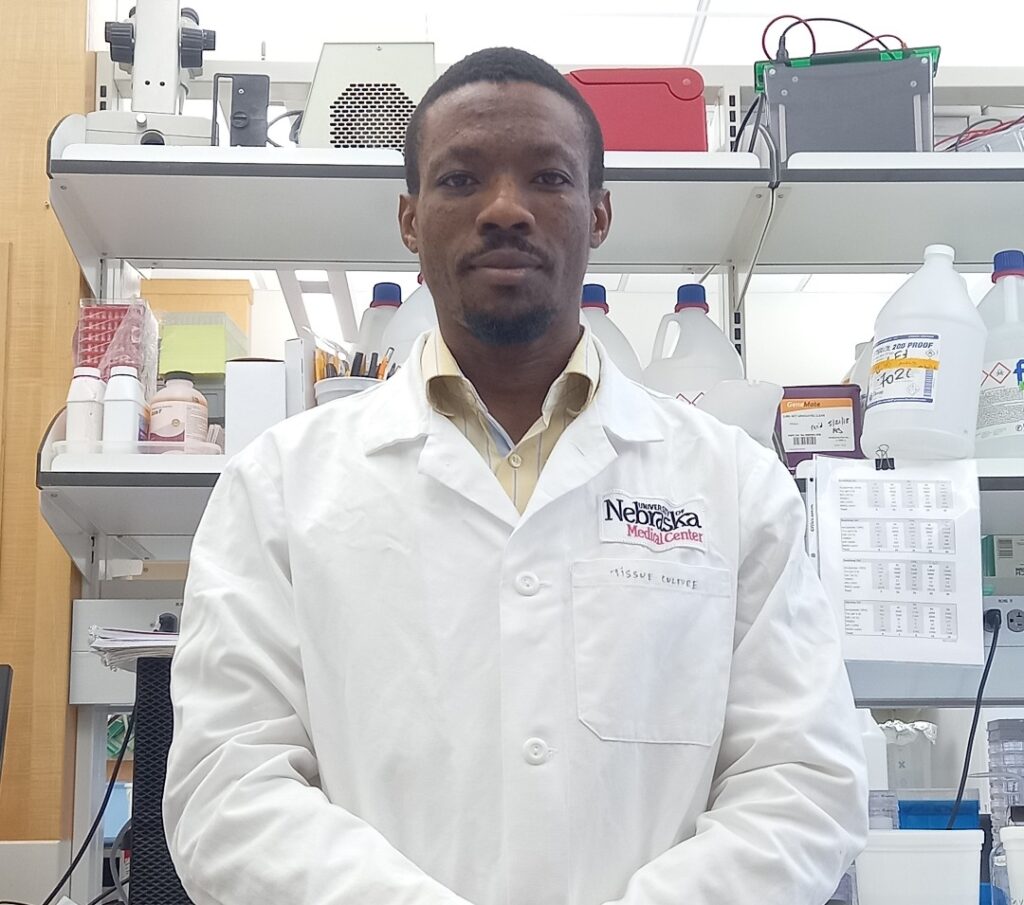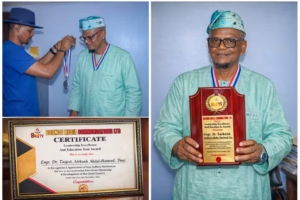
Ayomide Peter Akomolafe, a Nigerian researcher and graduate student at the University of Nebraska Medical Centre (UNMC) in Omaha, USA, has embarked on groundbreaking research to discover alternative and novel drugs for the treatment of glioblastoma, an aggressive form of brain cancer.
Glioblastoma, which originates from astrocytes in the brain or spinal cord, is known for its rapid growth and ability to invade healthy tissue, making it a challenging cancer to treat.
Born in Ikere-Ekiti, Ekiti State, Akomolafe has consistently demonstrated a passion for education and scientific research. His academic journey began at the Federal University of Technology, Minna, Nigeria, where he earned a Bachelor of Technology degree.
His early research focused on the use of natural plant products to treat oxidative stress-induced liver damage, with a study that identified the vegetable Pterocarpus mildbraedi as an effective remedy for oxidative damage in liver cells.
Akomolafe’s interest in antioxidants led him to pursue a Master’s degree in Biochemistry at the University of Ibadan, where his research focused on the role of antioxidants like Gallic acid and Protocatechuic acid in mitigating reproductive toxicities caused by toxicants such as Aflatoxin B1 and Perfluorooctanoic acid.
His work resulted in two published articles in well-regarded journals, further cementing his growing reputation in the field of biochemistry.
Currently, Akomolafe is advancing his research in Biochemistry and Molecular Biology, specializing in Neuro-Oncology at UNMC.
His current project aims to explore the potential of anti-histamine drugs as repurposed treatments for glioblastoma, using both human and mouse cell lines.
This cutting-edge research could potentially open new avenues for glioblastoma treatment.
Akomolafe’s academic work extends beyond his research. As a lecturer in the Department of Science Laboratory Technology at Federal Polytechnic, Ayede, Nigeria, he has collaborated with Professor Emmanuel Oyewo, publishing studies on immunology, particularly focusing on the effects of substance use on the immune system.
In addition to his academic contributions, Akomolafe is deeply committed to community service.
During his National Youth Service in Oyo State, he worked with the National Drug Law Enforcement Agency to raise awareness against drug abuse in schools.
He also served as coordinator of the Federal Road Safety Club and assistant coordinator of Interact at Cornerstone Group of Schools in Oyo, Nigeria, contributing to local initiatives that improved community welfare.
Akomolafe’s journey from humble beginnings to a promising career in biochemistry and neuro-oncology reflects his unwavering commitment to science, hard work, and dedication.
His research promises to make a lasting impact in the field of glioblastoma treatment, leaving a significant legacy in both healthcare and scientific research.
Copied from Nigerian Tribune






